Facilitators + Faculty
CREATIVE GRIEF STUDIO TEACHING TEAM
Why is social identity important?
We take social justice seriously. We do this work because we have a vision for agency, belonging, and hope – for everyone. Our grief support approach takes account of social identities and how social power influences making meaning after loss. We disagree with colorblind and politically neutral stances that encourage grief support practitioners to look past social identities. Instead, we believe strongly in claiming our preferred social identities. Often social identities are imposed upon us. We think it important to name the visible and invisible effects of social identity to facilitate agency, and offer a sense of belonging, and hope. In this spirit, we want to introduce ourselves to give you an idea of who you will be collaborating with as you complete this course.
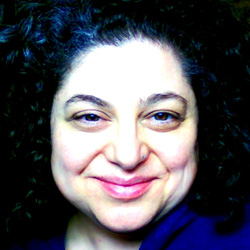
Kara LC Jones (CAIC, CRMT, BA)
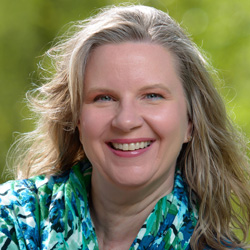
Tamara Beachum (BS)
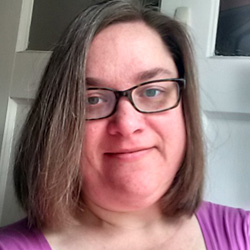
Gail M. Syring (MA Min, RM)
I am a white, American, cisgender woman, and I carry both the strengths and weakness of my German and Irish heritage. I have identified as Bisexual since I came out in 1991, and am proud of that identity. If I were to come out in the present, however, I would likely do so as either Omnisexual or Pansexual, as I no longer believe that gender is binary.
As I work and teach in higher education, I deeply appreciate the opportunities that have made my bachelor’s and master’s degrees possible. These include loans, grants, scholarships, work study, and the gift of an inheritance that my former spouse received from her family and used to pay off my education debt.
When I was coupled, my former spouse’s income made it possible for me to own a house in West Hartford, Connecticut. Now single, I have a full-time job, two part-time jobs, and several per diem jobs to maintain that home and manage my chronic health conditions.
I received the gift of life in the form of a kidney transplant from a living donor in 2011. Without that heroic act, I would have died before the age of 40. In addition to the maintenance required of an organ recipient, I also manage polycystic ovarian syndrome, diabetes, depression, and anxiety. Thanks to a team of professionals in Western medicine, Eastern medicine, integrative medicine, and mental health fields, I generally “pass” as able bodied, which gives me access in some cases, and shame and invisibility in others. Without excellent health insurance made possible by my full-time employment, I would not survive.
I was raised as a Roman Catholic, however my calling to ministry, my sexual orientation, my gender, and other social and political beliefs made this affiliation untenable in adulthood. I traveled through liberal Christianity, new age philosophy, and earth-based religions including Wicca, before concluding that my theology is on the same continuum as my sexuality. I am now a multi-faith minister who serves people of a variety of traditions, with particular care for people who are questioning or deliberately undefined.
At heart and in vocation, I am an educator, minister, facilitator, advocate, grief support professional, and spiritual guide. I am trained in non-violent communication, Reiki, SoulCollage, mediation, sexual assault survivor support, trauma informed investigation, bystander intervention, critical incident stress management, and sexuality education.
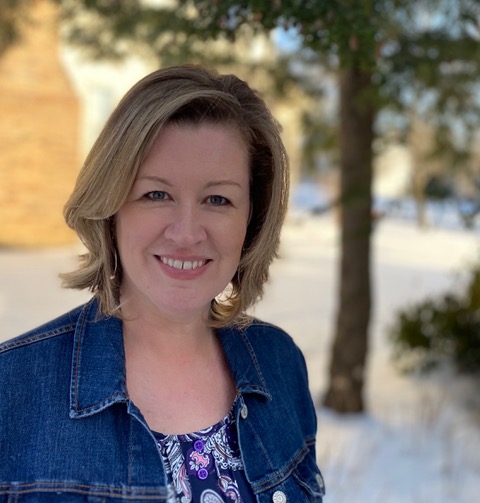
Lori Boyer (BA)
Being white, American born, and college educated, I have not personally lived with much oppression. However, the last several years have done a lot to educate me around the privileges and access my family and I have. I’m working hard to deeply understand, listen, and dismantle outdated notions that I have unknowingly developed throughout my earlier years. I remain committed to allying in anyway that I can.
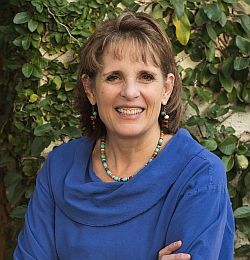
Carol Miller (LCSW)
I live in Tucson, Arizona, USA, which is across the country from where I grew up as a white cisgender woman in a predominantly white affluent area of upstate New York. My upbringing and white skin afforded me a good education and privilege, along with ways to move in a world in which many others experience struggle.
Moving to and living in the Washington, D.C. area for many years, I experienced two failed heterosexual marriages, gave birth to two sons, both of whom died shortly after their births, and a daughter. I came out as lesbian in my early 40s, which was daunting and overwhelming, yet I am aware that the cultural climate toward the LGBTQ+ community at that time was already shifting in a more open, accepting direction. My lesbian cisgender spouse and I have been married now for over 20 years.
The deaths of my two sons in 1986 and 1987 were watershed experiences and propelled me into the world of death, loss and grief. Their spirits continue to guide me through career and life choices. I quit a lucrative paralegal position and returned to complete my higher education and earn substantial loan debt that I’ll carry to the end of my life. I have worked in hospices, and organizations that serve those with HIV/AIDS, lesbians with cancer, and people who struggle with infertility. I also maintained a private practice in Northern Virginia. When I moved to Tucson in 2011, I joined a local hospice – Casa de la Luz – as their Bereavement Program Manager.
Along with my spouse, I face ongoing, albeit as-yet-small, aging-body health issues. I also have a history of having had cancer treatment twice in my life. These health events and the work I do with bereaved people keep me ever aware of life’s fragility.
After ending my time with Casa de la Luz Hospice at the end of June 2022, I reopened my own small part-time virtual private practice in Tucson and, along with my Arizona LCSW, I have reestablished my clinical licenses in Virginia, Maryland and the District of Columbia so that I might serve clients in a variety of locations. In addition to becoming a Creative Grief Support Practitioner in 2015, I also hold certifications as a Certified Compassionate Bereavement Care® Provider, a Certified Daring Way™ Facilitator, a Certified Clinical Trauma Professional, and a Certified Mind-Body Skills Group Facilitator. You can find me at CarolSMillerLCSW.com.
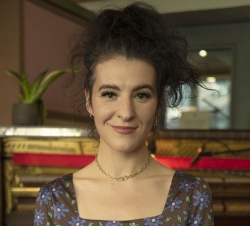
Jesse Paris Smith (Certified Creative Grief Support Practitioner)
I am an American born, white, cisgender woman. I was born in Detroit, Michigan, and spent my early childhood in the lakeside fishing town of St. Clair Shores. After my dad died in 1994 when I was 7 years old, we moved to NYC in 1996, and though I‘ve lived part time in other places, I have been mostly based in New York City since we relocated.
I am a writer, musician and composer, and have been playing piano since I was 13. Music started out for me as a mode of private creative expression, and I never expected or wanted for it to become my career. That said, I have been touring, recording, composing, and working actively as a musician since I was a teenager. In 2013, after years of composing mainly for commercial and film projects, I shifted gears and studied therapeutic music/sound and psychoacoustics. This experience completely changed my life, as I found my calling. I discovered a feeling of true purpose: using my skills intentionally to help others. My personal focus during the training was Music and Sound for Grief and Loss, and following the program I delved into learning and training within the realm of grief support.
I was raised in a spiritual/Christian household, though not in a strict way. I appreciate the backgrounds of all religions and belief systems and have been blessed with exposure to different religious and spiritual backgrounds. Though there are certain problems with organized religion and some of its antiquated ideas, I think it is beautiful to have some sort of faith and consider myself a highly spiritual person. For me, I believe it is important to remain open to any and all possibilities. Meditation and prayer are very grounding, and I find solace in the clarity and quiet peace they bring.
My experience with grief began when my dad died when I was 7. His mother and my uncle also died around the exact same time, and it became clear to me that death was a major and real part of life. The ‘ripples of loss’ that occurred with the death of my father were huge – leaving behind the only home I ever knew and relocating to a big city, losing my friends and everything familiar. These ripples of loss continued to arrive in a major way, and still continue into my adulthood. Other losses include both the unexpected and anticipated deaths of family and friends, my beloved cats, and non-death related losses including unrecognized dreams, disappointments, and the heartbreak of selling my childhood home. The grief itself shifts and changes as I go through life, and is always part of me as I learn new ways to navigate, developing new tools of comfort and remembrance.
As a child I also experienced anxiety, which manifested in symptoms of Obsessive Compulsive Disorder(OCD). I have been an advocate and ambassador of mental health foundations since 2018 and believe in the great importance of both helping individuals find the diagnosis and support they need, and also in ending stigma, myths, and misinformation around the conversation of mental health disorders. I feel the same way of course about the topics of death and grief. Even though things are changing in a major way, there is still a great deal of work to be done in that regard, especially in Western culture.
I am certified by Creative Grief Studio 2018 as a Creative Grief Support Coach and have trained in the areas of grief support/bereavement, thanatology/death education, and therapeutic music and sound practices. I am also 2nd degree Reiki certified and have studied other alternative practices like aromatherapy. I’m Co-founder of the climate action organization Pathway to Paris, which we started in 2014 as a way to bring musicians and artists together with politicians and scientists, all under the shared connector of climate activism. The climate crisis is the biggest and most urgent issue of our time, and also presents a great deal of global anxiety, as ecological grief is a very real and present thing that will only continue with more storms and devastation as we have seen a major increase in recent months. Similar to Covid-19, it is an overwhelming crisis that unites the world together in unprecedented loss and debilitating worry – a great example of the many ‘ripples of loss,’ as well as anticipatory grief. I truly believe that all of these topics are deeply interconnected, and I would like to continue to develop my skills of listening and action taking, to be a force of presence, warmth and heart centered compassion, offering support, education, and using my energy and efforts to bring people together to find new and innovative ways to navigate it all with the most important and deeply needed element of all: LOVE.
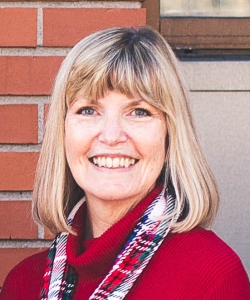
Maribeth Doerr (Certified Creative Grief Support Pracitioner)
I am a white cisgender woman 35 years into my 2 nd heterosexual marriage after an abusive first marriage to an alcoholic. I grew up with alcoholics in the American Rocky Mountains, and for a few years, lived five feet behind a bar that my parents managed when I was 7. I learned at that age that most parents don’t like their children having friends who live in trailers behind bars, have strange school lunches, or who play bartender with empty booze bottles in the trash trailer which was a part of my back yard. Those “trailer trash” years fostered feelings of not fitting in, and I was bullied most of my school years, even long after we left the trailer.
Like many children of alcoholics, my story begins as a perpetuation of generational cycles, and I married young. The marriage was a traumatic five years, and I was fortunate enough to have the support of friends and co-workers help me get out of a horribly unhealthy living situation. My experiences with death began in the first year of marriage when my first son was stillborn. I lost my second son at five days followed by two miscarriages. I was advised not to attempt another pregnancy. I’m glad I didn’t listen!
My second husband and I live in Reno, Nevada, and we’ve raised two healthy sons. We lost our youngest son’s twin during pregnancy, and we had an adoption fall through two years later. I’ve lost both of my brothers, both parents 4 months apart, and my nephew that was like my son/little brother that I helped raise. The losses of my babies led me to seek and give support, and in 1988, I started a support network for bereaved parents (Pen-Parents) that connected parents with similar losses. I also worked for Prodigy services (remember those standalone proprietary services pre-internet?) managing their grief community and giving grief workshops. During that time, I started a support network for pregnant women that evolved into an internet business. We helped many families, especially those pregnant after loss, until the dot com bomb, and I grieved the loss of a beloved business.
I quit college to help my mother after a stroke and a lack of funding kept me from returning. I sought my education from many other sources and experiences and I no longer regret leaving college. I completed the Creative Grief Studio training in 2012, and these days, I use my training in my employment for a liberal Lutheran church in downtown Reno. I work with the homeless, the aging, and the grieving. Because of the pandemic, Reno’s homeless are in even worse situations. It’s eye-opening heartbreaking work but as people have held space for me through the year, I will hold that space for them, doing what I can in this difficult world.
To help fill my well, I also teach yoga to seniors. I’m certified in Accessible Yoga, Gentle Yoga, and Chair Yoga, and have training in Yoga for Arthritis, Yoga for Eating Disorders and Prenatal Yoga. I am pursuing a new certification in yoga for grief with the help of scholarships and donations. Combining my many years of grief work with my years of yoga training is a dream come true for me. I am now in my early 60s, navigating my way in the world as a hearing impaired person with chronic arthritis and other health issues. Yoga is a way for me to stay present, not be consumed by pain, and to focus on the joy in my life. And I have much joy!
ADJUNCT FACULTY
Our adjunct faculty are all leaders in their fields, and we’re thrilled to have their pioneering work as part of our curriculum, as well as their voices contributing to the teaching through live or recorded lectures
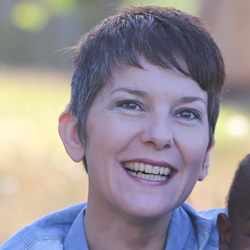
Cath Duncan (MSW)
I live in Cape Town, South Africa, where I was born and raised. As a white South African, owing to the ongoing effects of colonialism, apartheid, and global systemic white supremacy, I experience the many benefits of significantly greater education, wealth, privilege, and power than most South Africans have. I have also lived in and traveled around the UK, Canada, and the USA, where my foreign status afforded me less privilege, power, and access.
My husband and I became adoptive parents in 2013. Our son is Black. Being a transracial family and learning what it means to parent, protect, and love our son in a racist world continues to open my eyes to white supremacy and my own socialisation in racism.
My home language is English, I can also speak Afrikaans (albeit rather poorly), and I’m learning isiXhosa, the language of most Black South Africans in the Western Cape. Learning a new language has showed me the important role of language in culture, identity, a sense of belonging, and social power and access.
I’m a cisgender heterosexual woman in a monogamous marriage since 1999, with a cisgender heterosexual man. Despite this, my husband and I both find heteronormativity problematic in many ways, and try to ally for non-binary definitions of sex, gender, and sexuality. I was raised in the Christian faith, but no longer identify as a Christian.
I’m a “healthy” chronically ill person, living with the life-long health challenges and triumphs of kidney failure, kidney transplant, Mast Cell Activation Syndrome, and the side effects of the medications I have to take every day. I am legally classified as blind, with currently only about 30% vision left in my right eye and about 10% vision left in my left eye, and the future of my eyesight uncertain. I also use a hearing aid for low-tone deafness. However, because I enjoy generally good health and fitness (aside from the genetic mutations that keep trying to disable or kill me!), and because my illness and disabilities are mostly invisible, I generally pass as healthy and abled. (This has both benefits and disadvantages!) My white privilege and access to good medical treatment and disability aids has also buffered me from many of the hardest effects of chronic illness and disability. However, living with chronic illness and disability is one of my “outside of the dominant norm” experiences that both instructs and motivates me to learn more about the roles of social identity, privilege, and power in how people make sense of and live with loss and trauma.
My experiences with ill health, disability, and adoption provide me with daily opportunities to expand my appreciation and understanding of the many different kinds of loss and grief. I am also a bereaved parent, a Registered Clinical Social Worker with a background in child protection, trauma debriefing, and counseling for grief, burnout, anxiety, and depression, and I’m the author of the Remembering For Good Grief Workbook. You can learn more at CathDuncan.com.
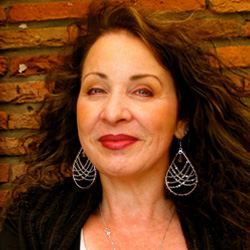
Dr. Lorraine Hedtke (MSW, ACSW, PhD)
Dr. Hedtke teaches about bereavement throughout the U.S. and internationally. We are pleased to have her teaching her ground-breaking Re-membering Conversations work to our participants. Her unique ideas and practices are drawn from narrative therapy and represent a departure from the conventional models of grief psychology. She co-authored the prescribed reading we use for this class, The Crafting of Grief: Constructing Aesthetic Responses to Loss. She has also authored several other books and articles available through www.rememberingpractices.com.

Dr. Harriet Lerner (PhD)
Dr. Lerner is one of the world’s most respected voices in the psychology of women and family relationships. She has authored over 10 books published in 35 languages. Her latest book, Why Won’t You Apologize?: Healing Big Betrayals and Everyday Hurts , was released in 2017. We’re very pleased that Dr. Lerner has contributed a recorded lecture on the topic of dealing with difficult but important relationships during grieving.
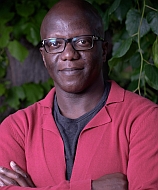
Ade Adeniji (LLB, MSc, MCIPD, CDWF, FRSA)
I was born in London in the late 1960s to parents from Nigeria who had gone to the UK to study. For the first 6 years of my life, I lived with a white foster family in Hythe, Kent. I guess this was the birthplace of my questioning around identity and belonging. That questioning continued when I moved to Nigeria in the mid 1970s with my parents, and when I returned to the UK in my late teens. I consider myself British-Nigerian.
My grandparents were Muslim. My mother converted to Christianity in her late teens, my father was a lapsed Muslim. I was fascinated by different religions from an early age and have explored a few along the way. That exploration led me to One Spirit Interfaith Foundation, where I was ordained as an Interfaith Minister and Spiritual Counsellor in 2004.
I am cisgender gay man, in a monogamous relationship with a cisgender white Dutch man. I divide my time between London and Amsterdam.
I am co-founder of The Quest for Gay Men, a UK-based social enterprise that delivers personal development programs aimed at transforming the relationships that gay men have with themselves, others and the world.
The Creative Grief Studio program includes a recorded lecture with me on understanding how social justice issues might influence grief, shame resilience, and meaning making after loss for marginalized groups. You can learn more about me at: TheQuestAwaitsYou.com, WalkWithYou.me and DaringEurope.com.
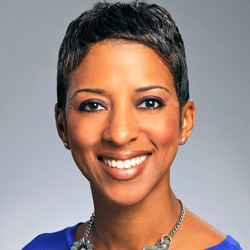
Dr. Kimberly Manning (MD) is an academic internist board certified in Internal Medicine. She is on the Emory University School of Medicine faculty, practicing at one of the largest public hospitals in the U.S., Grady Hospital. Through Reflections of a Grady Doctor she shares insights from her hospital work and life, telling stories of lessons she learns every day. We’re thrilled to have a recorded lecture with her on social justice, reflection and practices to sustain you in finding and maintaining purposeful work.
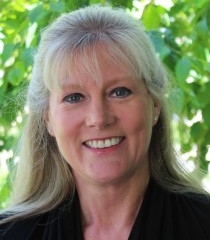
Dr. Darcy Harris (PhD, FT) is an Associate Professor and Thanatology Coordinator at King’s University College in Canada. She maintains a clinical practice specializing loss and transition and has published many articles, book chapters, and books including most recently the Handbook of Social Justice in Loss and Grief . Her social justice approach to grieving is a wonderful compliment to exploring cultural and societal grief rules that may obstruct grieving or feel oppressive to grieving people.
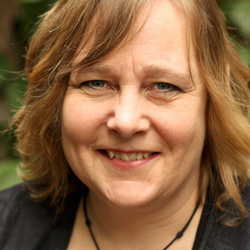
Heather Plett (BA)
Heather is an international speaker, facilitator, and writer who specializes in the art of holding space. Participants of her Holding Space Coach/Facilitator Program have come from six continents to join her online and at in-person retreats where they learn to offer deep listening and compassionate support to others and to themselves. Her writing on the subject of holding space has appeared in publications such as Harvard Business Review and Grist magazine and has been quoted in multiple books as well as curriculum for nurses, hospice care workers, yoga teachers, facilitators, and military chaplains. She lives in Winnipeg, Manitoba, Canada with her three daughters. Find out more at HeatherPlett.com.
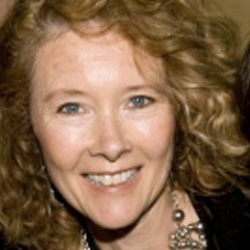
Vanessa Gorman (BA Com) is the filmmaker and writer behind the documentary, Losing Layla, an intensely personal award-winning documentary about the death of her daughter and the grief afterward. Her book, Layla’s Story, is a companion to the documentary. Vanessa shares with us her experiences of grief and shame and our discussions with her offer a moving and thought-provoking look into the impact of shame in grieving. You can learn more at VanessaGorman.com.
I have a new appreciation for the heavy grief rules we may carry so to shine the light on shame makes the process much lighter. The experience is giving me more space to be with my clients and I now find myself dropping more into a place of curiosity with my clients and being a guide for them versus an expert
I considered myself to know a lot about grief coming into this course, but I leave with so much more to offer myself, my clients and anyone in my life. I found that the information provided so much in the way of theory and application, as well as new ways to look at grief and how it can look in our future. I feel this was an amazing value for the money.
